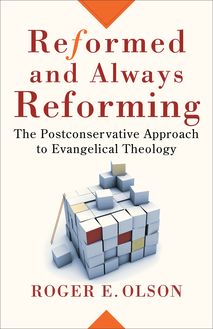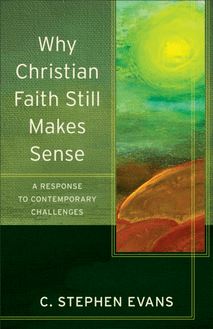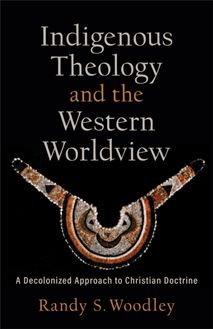-
 Univers
Univers
-
 Ebooks
Ebooks
-
 Livres audio
Livres audio
-
 Presse
Presse
-
 Podcasts
Podcasts
-
 BD
BD
-
 Documents
Documents
-
- Cours
- Révisions
- Ressources pédagogiques
- Sciences de l’éducation
- Manuels scolaires
- Langues
- Travaux de classe
- Annales de BEP
- Etudes supérieures
- Maternelle et primaire
- Fiches de lecture
- Orientation scolaire
- Méthodologie
- Corrigés de devoir
- Annales d’examens et concours
- Annales du bac
- Annales du brevet
- Rapports de stage
La lecture à portée de main
Defending Substitution (Acadia Studies in Bible and Theology) , livre ebook
85
pages
English
Ebooks
2015
Écrit par
Simon Gathercole
Publié par
Baker Publishing Group
Vous pourrez modifier la taille du texte de cet ouvrage
Obtenez un accès à la bibliothèque pour le consulter en ligne En savoir plus
Découvre YouScribe en t'inscrivant gratuitement
Découvre YouScribe en t'inscrivant gratuitement
85
pages
English
Ebook
2015
Vous pourrez modifier la taille du texte de cet ouvrage
Obtenez un accès à la bibliothèque pour le consulter en ligne En savoir plus
Publié par
Date de parution
12 mai 2015
Nombre de lectures
0
EAN13
9781441223111
Langue
English
Poids de l'ouvrage
2 Mo
Publié par
Date de parution
12 mai 2015
Nombre de lectures
0
EAN13
9781441223111
Langue
English
Poids de l'ouvrage
2 Mo
Acadia Studies in Bible and Theology
Craig A. Evans and Lee Martin McDonald, General Editors
The last two decades have witnessed dramatic developments in biblical and theological study. Full-time academics can scarcely keep up with fresh discoveries, recently published primary texts, ongoing archaeological work, new exegetical proposals, experiments in methods and hermeneutics, and innovative theological syntheses. For students and nonspecialists, these developments are confusing and daunting. What has been needed is a series of succinct studies that assess these issues and present their findings in a way that students, pastors, laity, and nonspecialists will find accessible and rewarding. Acadia Studies in Bible and Theology, sponsored by Acadia Divinity College in Wolfville, Nova Scotia, and in conjunction with the college’s Hayward Lectureship, constitutes such a series.
The Hayward Lectureship has brought to Acadia many distinguished scholars of Bible and theology, such as Sir Robin Barbour, John Bright, Leander Keck, Helmut Koester, Richard Longenecker, Martin Marty, Jaroslav Pelikan, Ian Rennie, James Sanders, and Eduard Schweizer. The Acadia Studies in Bible and Theology series reflects this rich heritage.
These studies are designed to guide readers through the ever more complicated maze of critical, interpretative, and theological discussion taking place today. But these studies are not introductory in nature; nor are they mere surveys. Written by leading authorities in the field, the Acadia Studies in Bible and Theology series offers critical assessments of the major issues that the church faces in the twenty-first century. Readers will gain the requisite orientation and fresh understanding of the important issues that will enable them to take part meaningfully in discussion and debate.
© 2015 by Simon Gathercole
Published by Baker Academic
a division of Baker Publishing Group
P.O. Box 6287, Grand Rapids, MI 49516-6287
www . bakeracademic . com
Ebook edition created 2015
Ebook corrections 07.18.2022
All rights reserved. No part of this publication may be reproduced, stored in a retrieval system, or transmitted in any form or by any means—for example, electronic, photocopy, recording—without the prior written permission of the publisher. The only exception is brief quotations in printed reviews.
Library of Congress Cataloging-in-Publication Data is on file at the Library of Congress, Washington, DC.
ISBN 978-1-4412-2311-1
Unless noted otherwise, Scripture translations are those of the author.
Scripture quotations labeled ESV are from The Holy Bible, English Standard Version® (ESV®), copyright © 2001 by Crossway, a publishing ministry of Good News Publishers. Used by permission. All rights reserved. ESV Text Edition: 2007
Scripture quotations labeled KJV are from the King James Version of the Bible.
Scripture quotations labeled NIV are from the Holy Bible, New International Version®. NIV®. Copyright © 1973, 1978, 1984, 2011 by Biblica, Inc.™ Used by permission of Zondervan. All rights reserved worldwide. www.zondervan.com
Scripture quotations labeled NRSV are from the New Revised Standard Version of the Bible, copyright © 1989, by the Division of Christian Education of the National Council of the Churches of Christ in the United States of America. Used by permission. All rights reserved.
Baker Publishing Group publications use paper produced from sustainable forestry practices and post-consumer waste whenever possible.
“Addressing a hot topic in Pauline studies, Gathercole’s Defending Substitution agrees with those who see Christ’s death as one in which believers participate and as effecting apocalyptic deliverance. At the same time, he argues persuasively for the less-fashionable view that Paul also speaks of that death as substitutionary: Christ died in the place of others, and for their sins. A model of scholarly clarity and sobriety.”
— Stephen Westerholm , McMaster University
“In this slender but admirably clear and focused volume, Simon Gathercole sets out to recover the recently unfashionable understanding of the atonement in classic Reformational terms of substitution. He concludes that there is indeed every reason to recognize this theme in key texts such as 1 Corinthians 15:3 and Romans 5:6, when they are understood in their Old Testament as well as Greco-Roman contexts. But this is for him a case of compatible rather than competing metaphors: Christ’s substitution for sinners does not make his death any the less representative or liberating. I warmly recommend this revival of a classic argument that recent New Testament scholarship sometimes appears to have forgotten. Here is an eminently accessible point of reference for future exegetical, theological, and, indeed, ecumenical engagement with St. Paul on the death of Christ.”
— Markus Bockmuehl , Keble College, Oxford
To Pete and Dirk
Contents
Cover 1
Series Page 2
Title Page 3
Copyright Page 4
Endorsements 5
Dedication 6
Preface 9
Abbreviations 11
Introduction 13
The Importance of Substitution
Defining Substitution: Christ in Our Place
Criticisms of Substitution
1. Exegetical Challenges to Substitution 29
The Tübingen Understanding of Representative “Place-Taking”
Interchange in Christ
Apocalyptic Deliverance
The Omission or Downplaying of “Sins”
Conclusion
2. “Christ Died for Our Sins according to the Scriptures” (1 Cor. 15:3) 55
The Importance of 1 Corinthians 15:3–4
“According to the Scriptures”
Substitution in 1 Corinthians 15:3
Conclusion
Excursus: An Objection—Why, Then, Do Christians Still Die? 80
3. The Vicarious Death of Christ and Classical Parallels (Rom. 5:6–8) 85
The Translation of Romans 5:6–8
A Sketch of the Exegesis
Vicarious Deaths in Classical Tradition
The Comparison in Romans 5:6–8
Conclusion
Conclusion 109
Bibliography 115
Index of Subjects 122
Index of Authors 124
Index of Scripture and Other Ancient Sources 126
Back Cover 129
Preface
T his book originated in a request from Francis Watson (my colleague at the time in Aberdeen) to present a paper in the Pauline Soteriology section at the Society of Biblical Literature Annual Meeting in Washington, DC, in 2006. I am grateful to Francis for this and also to John Webster (now at the University of St. Andrews) and Miroslav Volf (Yale University) for responding to the paper. This paper then underwent a process of binary fission in which the material on 1 Corinthians 15 and Romans 5 became separated into two lectures. I am thankful to the faculty of Concordia Theological Seminary (especially Charles Gieschen) in Fort Wayne, Indiana, for the invitation to deliver the lectures at their Annual Symposium on Exegetical Theology and Annual Symposium on the Lutheran Confessions in January 2008. In 2010 the material expanded into three lectures, which were given as the Annual Biblical Studies Lectures at Campbellsville University, Kentucky, at the kind invitation of Jarvis Williams. Some of the material was also presented at Tyndale University, Toronto, 2011, and as the Robert Saucy Lectures at Biola University, thanks to Ben Reynolds and Clinton Arnold, respectively. Last and by no means least, I am grateful to Craig Evans for the opportunity to give the material here as the Hayward Lectures at Acadia University in 2011, and to publish them in the Acadia Studies in Bible and Theology series.
I am also grateful to those who have read parts of this book in its written form. Morna Hooker, Dan Bailey, and Richard Bell kindly read parts of chapter 1 and helped me avoid various misunderstandings. David Shaw read the introduction and chapter 1, and James Carleton Paget went well beyond the call of duty in reading the whole manuscript.
In writing the book I was concerned not to sacrifice too much the accessibility that was necessary to a series of public lectures, and so I have tried to stick as closely as possible to their original style in order to make the argument as easily comprehensible as possible, both in clarity and brevity. The argument here is of course only a rather cursory one, and I readily anticipate reviewers’ criticisms that I have omitted this or that passage that might have supported or damaged my case, or omitted responding to this or that objection that could be lodged against the argument. Others might complain that I have not set the Pauline evidence in its larger theological framework or the individual passages in their wider literary context. I can only respond that if one were to do all of that, the book would have had to multiply enormously in size. On Callimachus’s principle that “a big book is a big evil” ( μέγα βιβλίον μέγα κακόν ), I hope that the brevity of this book is more an advantage than a disadvantage.
I would like to dedicate this book to fellow musketeers Dirk Jongkind and Pete Williams. It has been a privilege (as well as great fun) speaking together with them at Bible and Church events over the past few years. Long may our friendship continue.
Abbreviations A.H. Irenaeus, Against Heresies AJA American Journal of Archaeology Alc. Euripides, Alcestis CBQ Catholic Biblical Quarterly Diss . Epictetus, Dissertationes Fab . Hyginus, Fabulae IG Inscriptiones graecae IGBulg Inscriptiones graecae in Bulgaria repertae IJST International Journal of Systematic Theology Il. Homer, Iliad JHS Journal of Hellenic Studies JSNT Journal for the Study of the New Testament JTS Journal of Theological Studies KEK Kritisch-exegetischer Kommentar über das Neue Testament LCL Loeb Classical Library Mor. Plutarch, Moralia NIGTC New International Greek Testament Commentary NovT Novum Testamentum NTS New Testament Studies OCD 3 Oxford Classical Dictionary . Edited by S. Hornblower and A. Spawforth. 3rd ed. Oxford: Oxford University Press, 1996 Off. Cicero, De officiis P. Hercul. Papyrus Herculanensis PIBA Proceedings of the Irish Biblical Association Pr. Man. Prayer of Manasseh Pyth . Iamblichus, Life of Pythagora

Ebooks
Reformed and Always Reforming (Acadia Studies in Bible and Theology)
E. Olson Roger

Ebooks
Religions
Reformed and Always Reforming (Acadia Studies in Bible and Theology)
E. Olson Roger
122 pages
English

Ebooks
Finally Feminist (Acadia Studies in Bible and Theology)
Jr. Stackhouse John G.

Ebooks
Religions
Finally Feminist (Acadia Studies in Bible and Theology)
Jr. Stackhouse John G.
85 pages
English

Ebooks
Why Christian Faith Still Makes Sense (Acadia Studies in Bible and Theology)
Stephen Evans C.

Ebooks
Philosophie
Why Christian Faith Still Makes Sense (Acadia Studies in Bible and Theology)
Stephen Evans C.
82 pages
English

Ebooks
Defending Substitution (Acadia Studies in Bible and Theology)
Simon Gathercole

Ebooks
Religions
Defending Substitution (Acadia Studies in Bible and Theology)
Simon Gathercole
85 pages
English

Ebooks
Indigenous Theology and the Western Worldview (Acadia Studies in Bible and Theology)
S. Woodley Randy

Ebooks
Religions
Indigenous Theology and the Western Worldview (Acadia Studies in Bible and Theology)
S. Woodley Randy
80 pages
English

Ebooks
How We Got the New Testament (Acadia Studies in Bible and Theology)
E. Porter Stanley

Ebooks
Religions
How We Got the New Testament (Acadia Studies in Bible and Theology)
E. Porter Stanley
179 pages
English

Ebooks
Divine Christ (Acadia Studies in Bible and Theology)
B. Capes David

Ebooks
Religions
Divine Christ (Acadia Studies in Bible and Theology)
B. Capes David
153 pages
English
-
 Univers
Univers
-
 Ebooks
Ebooks
-
 Livres audio
Livres audio
-
 Presse
Presse
-
 Podcasts
Podcasts
-
 BD
BD
-
 Documents
Documents
-
Jeunesse
-
Littérature
-
Ressources professionnelles
-
Santé et bien-être
-
Savoirs
-
Education
-
Loisirs et hobbies
-
Art, musique et cinéma
-
Actualité et débat de société
-
Jeunesse
-
Littérature
-
Ressources professionnelles
-
Santé et bien-être
-
Savoirs
-
Education
-
Loisirs et hobbies
-
Art, musique et cinéma
-
Actualité et débat de société
-
Actualités
-
Lifestyle
-
Presse jeunesse
-
Presse professionnelle
-
Pratique
-
Presse sportive
-
Presse internationale
-
Culture & Médias
-
Action et Aventures
-
Science-fiction et Fantasy
-
Société
-
Jeunesse
-
Littérature
-
Ressources professionnelles
-
Santé et bien-être
-
Savoirs
-
Education
-
Loisirs et hobbies
-
Art, musique et cinéma
-
Actualité et débat de société
- Cours
- Révisions
- Ressources pédagogiques
- Sciences de l’éducation
- Manuels scolaires
- Langues
- Travaux de classe
- Annales de BEP
- Etudes supérieures
- Maternelle et primaire
- Fiches de lecture
- Orientation scolaire
- Méthodologie
- Corrigés de devoir
- Annales d’examens et concours
- Annales du bac
- Annales du brevet
- Rapports de stage





